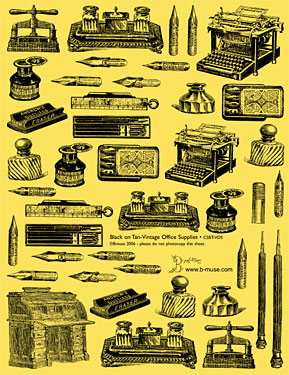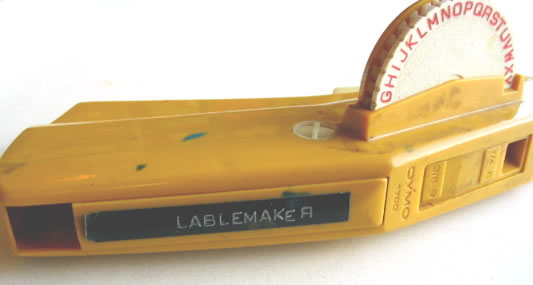Today I placed an order with Staples for some supplies badly needed at the Center:
- “Reinforcement, hole”
- “Pressboard Report Cover, side tab”
My reader may well wonder, “why badly needed?” No one died because pages fell out of a three-ring binder.
We forget at times how much the work of writing still depends on paper. As much as I’ve tried, mightily in fact, to be rid of paper in my office, I find that about once per year, I will need an ancient text I photocopied in grad school in the late 1980s, an article I saved and hole-punched from a moldy issue of The Chronicle of Higher Education in the mid 90s, or a news item printed from the New York Times‘ Web site in 2005.
These sorts of materials are not alien to my students, but I suspect that keeping and organizing them are as alien as, say, using a slide rule would be to their peers in the sciences. And yet a Writing Center could not exist without its crumbling archives of printed matter.
One day in the not-too-distant future, such paper-based storage supplies will be as hard to locate as typewriter ribbons (Google that, you young rascals! We can still order them!). When that dolorous day arrives, I’ll do one of two things.
Option One: horde the remaining stocks of Dymo labels from the 1970s, hole-punch machines, and White-Out for personal use.
Option Two: Open “The Old Man Store,” with lines of clothing (suspenders, by gum!) and food (Where in the Sam Hill can I get me any Ovaltine?).
For a long while, The Vermont Country Store served this purpose, even including jabs at “the young word-processing crowd” in their praise for a manual typewriter (no longer available, it seems).
As if my students get sweaty palms thinking about opening MS Word.
I just wonder if, in a few years, their younger siblings will be saying things like “OMG you still have an external computer!” as they chat on their brain-implants.
What that will mean for writing remains unseen, but I worry about the longevity of the technologies for paper storage. These everyday items have so long been a part of a writer’s fortifications against forgetfulness and stupidity.


I may be an anomaly in the student body, but I love paper. There’s something about a pen and paper that makes words flow; perhaps it's because there’s a more direct link between the movement of the hand to the brain, or maybe it just feels nice to have a notebook full of words rather than a little flashdrive full of data. And of course, paper doesn’t spontaneously combust in the way that computers frequently decide to commit suicide, taking with them all of your bloody, sweaty, tear-stained labor (though getting bodily fluids all over the keyboard probably doesn't help).
And don’t even mention the idea of the paper book going by the wayside! Electronic documents might be more portable, but who can say that they enjoy that “new-kindle smell?” And who can honestly stare at a screen for hours at a time without developing eyesight problems or massive headaches? (Not me!)
Your mention of brain-implanted computers (however ironically it was meant to be construed) is rather frightening in its possibility. All of our technological progression seems to be aimed at making what we experience smaller, more discrete, less real in the sense that it is tangible. While I can’t deny the environmental positives of reducing paper matter in circulation, I can’t help but shudder at the notion that we are trying to put still more barriers between our personal perceptions and the real world. Electronic information does just that; the images on the screen are simply projections of invisible information, held in some vast server tank somewhere in California. Books are much more real. The words on the page are literally there, right in front of your eyes. You can tear out a page and hold the words in your hand.
So I suppose in fifty years I’ll be that old doddering granny who vehemently clings to her pen and paper- if there still is any.
Athena wrote, “So I suppose in fifty years I'll be that old doddering granny who vehemently clings to her pen and paper- if there still is any.”
Without a crystal ball, I can only say “you’ll find out.” As for e-books? The only thing they’ll slay are heavy textbooks, in the short-term. And few of us will miss them. I’m going to blog about the “killer app” for Apple’s poorly named iPad soon: easily updated e-texts.
But that’s a another post.
And I do hate paper records (though I love printed books). But those records are still a necessary evil.
Maybe it’s the Mac’s laptop screen, as compared to a PC’s, but I can read e-text all day long on my Macbook with no more eye-strain than I can on paper.